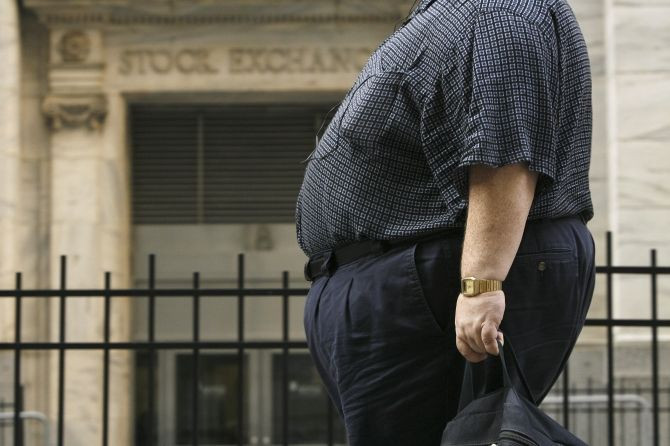Belly Fat Increases Fracture Risk in Men

Men with excess visceral belly fat have an increased risk of developing osteoporosis, a new study says.
"It is important for men to be aware that excess belly fat is not only a risk factor for heart disease and diabetes, it is also a risk factor for bone loss," said Miriam Bredella, M.D., radiologist at Massachusetts General Hospital.
An estimated 37 million American men over age 20 are obese, according to data from the National Center for Health Statistics. Men with higher levels of body fat were generally thought as safe from osteoporosis, and for long physicians thought that women were at higher risk of bone loss.
"Most studies on osteoporosis have focused on women. Men were thought to be relatively protected against bone loss, especially obese men," said Dr. Bredella, who is also an associate professor of radiology at Harvard Medical School in Boston.
Visceral or intra-abdominal fat is located deep under the muscle tissue in the abdominal cavity, unlike subcutaneous fat that lies just below the skin. The level of visceral fat in the body depends on many factors like genetics, diet, environment and levels of physical activity, the study said.
Men with high visceral fat are also known to be at higher risk for cardiovascular diseases.
The study included 35 obese men with a mean age of 34 and a mean body mass index (BMI) of 36.5. The participants underwent CT of the abdomen and thigh to assess fat and muscle in the body. Bone strength and fracture risk of the bones was assessed by a technique called finite element analysis (FEA).
"FEA is a technique that is frequently used in mechanical engineering to determine the strength of materials for the design of bridges or airplanes, among other things. FEA can determine where a structure will bend or break and the amount of force necessary to make the material break. We can now use FEA to determine the strength or force necessary to make a bone break," said Dr. Bredella.
The study results showed that visceral fat was associated with and increased fracture risk for men who had similar BMI. Muscle mass was positively associated with bone strength meaning that men whose weight was largely due to the muscles in the body had higher bone strength.
"We were not surprised by our results that abdominal and visceral fat are detrimental to bone strength in obese men. We were, however, surprised that obese men with a lot of visceral fat had significantly decreased bone strength compared to obese men with low visceral fat but similar BMI," Dr. Bredella added.
The study was presented at the annual meeting of the Radiological Society of North America.



























